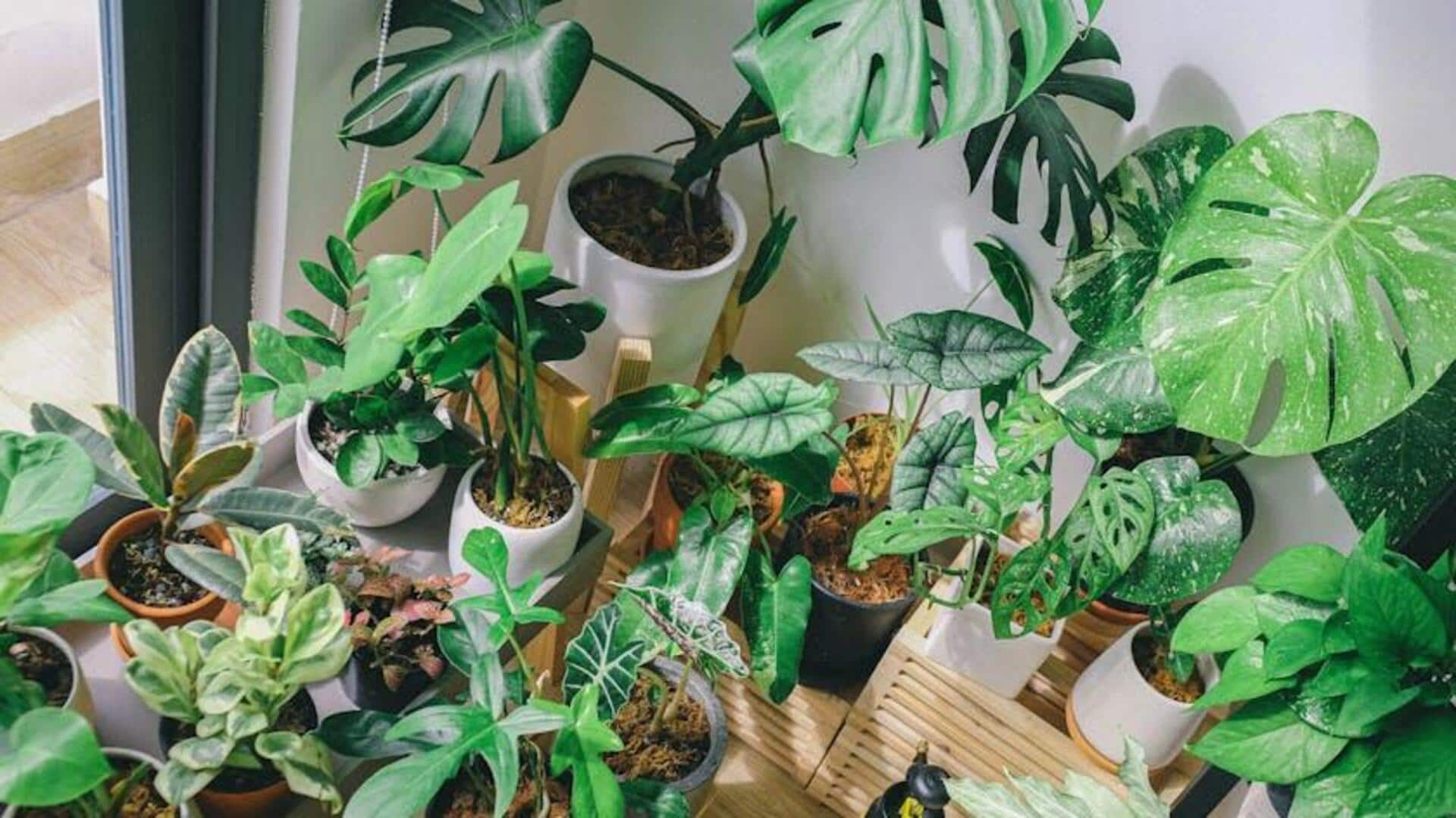
5 ways to boost plant growth naturally
What's the story
Enhancing plant growth without depending on chemicals is a sustainable way that is good for both the environment and your garden. By going the natural way, you can promote healthy plant development without disturbing ecological balance. Here are five effective ways to boost plant growth naturally, so that your garden thrives without any synthetic fertilizers or pesticides. They're eco-friendly and cost-effective too!
Organic matter
Composting for nutrient-rich soil
Composting is a great way to enrich soil with nutrients necessary for plant growth. By recycling kitchen scraps and yard waste into compost, you create a rich organic matter that improves soil structure and fertility. The decomposition process releases nutrients slowly, giving the plants a steady supply of nourishment. Plus, composting also retains moisture in the soil, reducing the need for frequent watering. This method not only improves plant health but also reduces waste.
Soil cover
Mulching to retain moisture
Mulching is basically covering the soil surface with organic materials such as straw or wood chips. This practice retains moisture by preventing evaporation from the soil surface. It also suppresses weed growth, reducing competition for nutrients and water among plants. As mulch decays over time, it returns organic matter to the soil, enriching it further. Mulching is an easy and effective way to keep your garden growing optimally.
Plant synergy
Companion planting techniques
Companion planting is all about growing different plants together that benefit each other in ways more than one. Growing certain plants together can repel pests or attract beneficial insects, thus reducing the need for chemical interventions. From planting marigolds near vegetables to deter harmful insects to attracting pollinators such as bees and butterflies, companion planting promotes biodiversity in your garden and ensures overall plant health through natural interactions.
Eco-friendly defense
Utilizing natural pest control methods
Natural pest control methods use biological agents or physical barriers instead of chemicals, to effectively manage pests in your garden. Introducing beneficial insects, like ladybugs or lacewings, helps control aphid populations naturally without harming other organisms in your ecosystem's balance, systemically maintained by nature itself. Physical barriers, such as nets, protect crops from larger pests but allow sunlight penetration necessary for photosynthesis processes required by all green life forms alike.
Growth management
Regular pruning practices
Regular pruning promotes healthy growth by cutting off dead branches and leaves, which might carry diseases or fungi. It lets more light and air circulate, encouraging new shoots and resulting in higher yields. This practice is a must for year-round gardening success, improving plant health and productivity without chemicals.